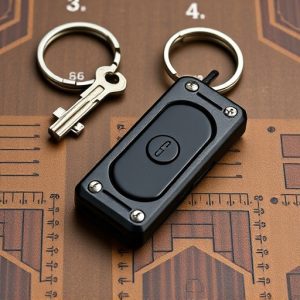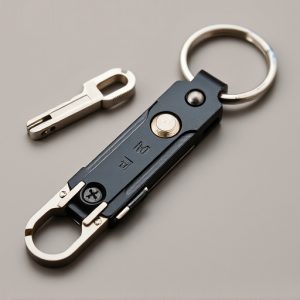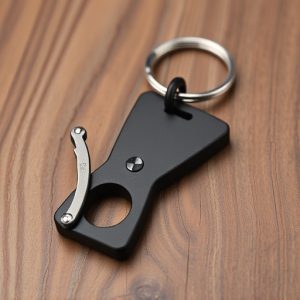Keychain Safety Device Legalities: A State-by-State Guide to Compliance
Understanding keychain weapon permit laws is crucial for responsible carrying. Regulations vary by s…….
Understanding keychain weapon permit laws is crucial for responsible carrying. Regulations vary by state, including background checks, training, age limits, and device registration. Staying informed about these keychain weapon permit requirements ensures legal compliance, avoids repercussions, and promotes safe ownership of compact self-defense tools.
“In today’s world, personal safety is paramount, and keychain weapon permit laws are gaining prominence as a means of empowering individuals. Understanding the legal requirements for carrying a keychain safety device is crucial for responsible ownership.
This comprehensive guide delves into the intricacies of keychain weapon permit laws, providing an overview of state-specific regulations and their impact. We’ll explore essential tips to ensure compliance, helping you navigate the legal landscape while prioritizing your safety.”
- Understanding Keychain Weapon Permit Laws: A Comprehensive Overview
- Legal Requirements for Carrying a Keychain Safety Device
- State-Specific Regulations and Their Impact
- Ensuring Compliance: Tips for Responsible Ownership
Understanding Keychain Weapon Permit Laws: A Comprehensive Overview
Understanding keychain weapon permit laws is crucial for anyone considering carrying a concealed weapon for personal safety. These regulations vary significantly from state to state, making it essential to familiarize yourself with the specific requirements in your area. Keychain weapon permit requirements typically involve background checks, training courses, and eligibility criteria that ensure responsible ownership and safe handling of such devices.
Each jurisdiction has its own set of standards, covering factors like minimum age, previous criminal history, mental health evaluations, and proof of completion for approved safety courses. Compliance with these keychain weapon permit laws not only allows you to legally carry a compact self-defense tool but also demonstrates your commitment to using it responsibly and in adherence to the law.
Legal Requirements for Carrying a Keychain Safety Device
In many jurisdictions, carrying a keychain weapon, or any concealed firearm, is subject to strict legal requirements and regulations. Before purchasing and using a keychain safety device, it’s crucial to understand the specific laws in your area. These rules often include licensing or permit systems that mandate age restrictions, background checks, training certifications, and registration of the device itself. The keychain weapon permit requirements vary widely across regions, with some states allowing concealed carry with minimal restrictions while others have stringent guidelines.
In terms of legal considerations, you must be aware of the types of devices permitted, places where they can be carried, and any conditions or limitations placed on their use. Some regions might also require specific safety features and locking mechanisms for such devices to ensure responsible ownership and minimize risks. Staying informed about these keychain weapon permit requirements is essential to avoid legal repercussions and fully comprehend your rights and responsibilities as a prospective owner.
State-Specific Regulations and Their Impact
Each state in the US has its own set of regulations regarding keychain weapons, also known as keychain safety devices. These laws can vary widely from one jurisdiction to another, impacting both the accessibility and legal status of such devices. For instance, some states have specific requirements for obtaining a keychain weapon permit, including background checks, training, and registration. Understanding these state-specific regulations is crucial before considering carrying a keychain weapon for personal safety.
The impact of these laws is significant, affecting not only individual rights but also the overall approach to self-defense. States with stringent requirements aim to balance public safety and access to self-defense tools. Conversely, more lenient laws may reflect a different societal perspective on personal protection and the role of hidden weapons. Staying informed about keychain weapon permit requirements in your state is essential for ensuring compliance and promoting a safe environment for all.
Ensuring Compliance: Tips for Responsible Ownership
Ensuring compliance with legal requirements is a responsible step for any owner of a keychain weapon permit. Each jurisdiction has its own set of rules and regulations regarding concealed carry permits, including specific guidelines for keychain weapons. It’s crucial to understand these laws before purchasing and carrying such a device. One key tip is to stay informed about local and state laws; these can change over time, so regular updates are essential.
Responsible ownership also includes understanding the restrictions on where and how you can use your keychain weapon. This may include limitations on public spaces, vehicles, or specific types of establishments. Always be aware of your rights and responsibilities to ensure compliance with the keychain weapon permit requirements and avoid any legal repercussions.
When it comes to keychain safety devices, understanding and adhering to legal requirements is paramount. By reviewing state-specific regulations and ensuring compliance with keychain weapon permit rules, responsible owners can protect themselves and their loved ones. Remember, knowledge of the law empowers; stay informed to stay safe.


